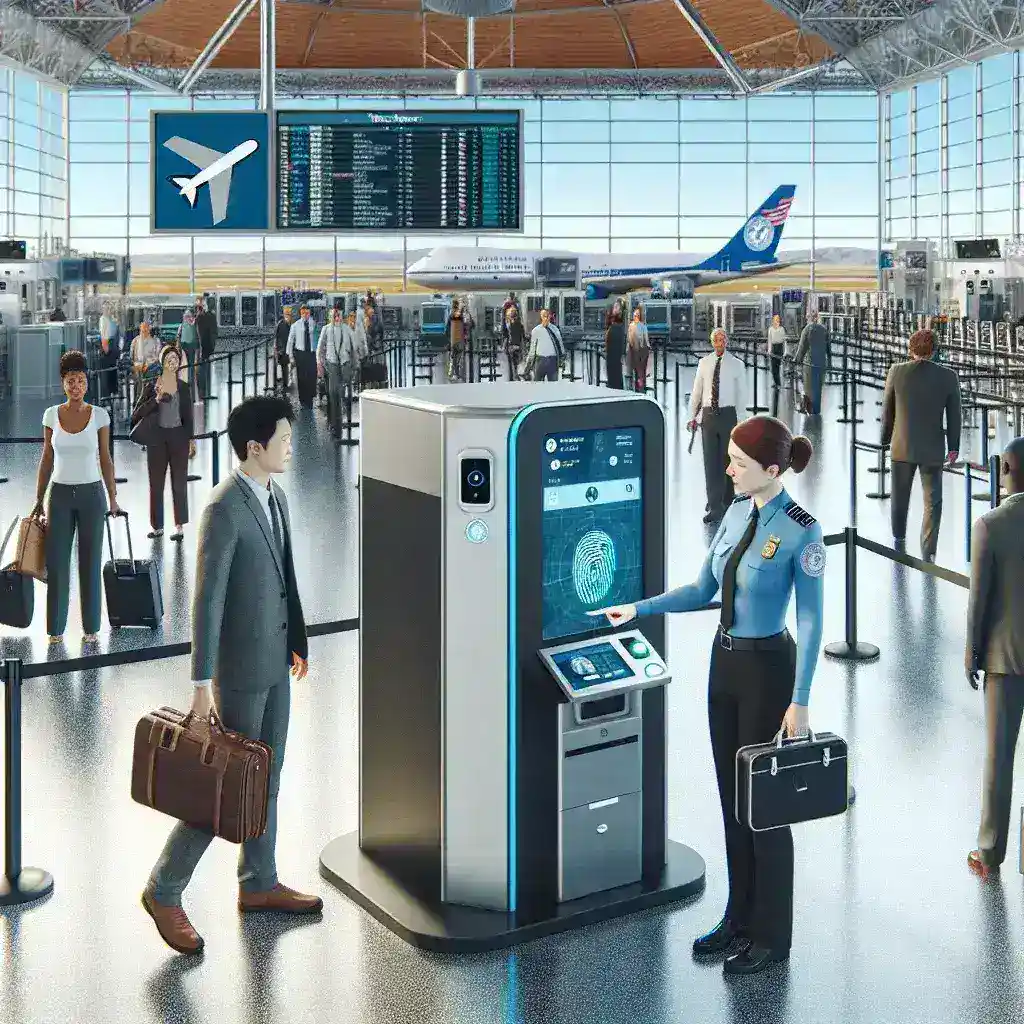Introduction
In an era where efficiency and convenience are paramount, U.S. airports are embracing technological advancements to enhance the travel experience. One of the most significant developments in recent years is the adoption of digital identity kiosks designed to expedite TSA PreCheck clearance. These kiosks are transforming the way travelers navigate airport security, allowing for a more seamless journey from check-in to boarding.
The Rise of Digital Identity Kiosks
Digital identity kiosks are self-service stations that utilize biometric technology and digital verification to confirm a traveler’s identity quickly and securely. Initially introduced to streamline the check-in process, these kiosks have now expanded their functionality to include TSA PreCheck clearance. Airlines and airports are increasingly recognizing the benefits of this technology as they seek to improve passenger flow and reduce wait times.
What is TSA PreCheck?
TSA PreCheck is a program that allows low-risk travelers to enjoy expedited security screening at participating U.S. airports. This program has gained popularity since its inception in 2011, as it offers a more comfortable and efficient travel experience by allowing passengers to keep on their shoes, belts, and light jackets, as well as keeping laptops and compliant liquids in their bags.
The Integration of Digital Kiosks in TSA PreCheck
The integration of digital identity kiosks into the TSA PreCheck program aims to enhance security while maintaining efficiency. By using biometric data, such as fingerprints or facial recognition, these kiosks can quickly verify a traveler’s identity and TSA status, allowing them to bypass traditional lines. This innovation not only saves time for frequent travelers but also increases overall airport security by ensuring that only authorized individuals access expedited screening.
Benefits of Digital Identity Kiosks
1. Enhanced Efficiency
One of the primary advantages of digital identity kiosks is the significant reduction in wait times. Traditional TSA screening can often lead to long queues, particularly during peak travel hours. By streamlining the verification process, these kiosks can help alleviate congestion at security checkpoints.
2. Improved Security
Biometric identification methods employed by these kiosks add an extra layer of security. By accurately verifying identities through advanced technology, airports can minimize the risk of unauthorized access to secure areas.
3. Increased Passenger Satisfaction
Travelers today value efficiency and convenience. The implementation of digital identity kiosks directly addresses these preferences, enhancing overall passenger satisfaction and encouraging a positive travel experience.
4. Cost-Effectiveness for Airports
Although the initial investment in technology may be significant, digital identity kiosks can ultimately reduce operational costs by minimizing manpower at security checkpoints. This allows airport staff to focus on more complex security tasks, enhancing both efficiency and effectiveness.
Challenges and Considerations
1. Privacy Concerns
As with any technological advancement involving personal data, privacy concerns are at the forefront. Travelers may be apprehensive about how their biometric information is collected, stored, and utilized. It is vital for airports to implement robust data protection measures to address these concerns.
2. Technology Reliability
Although technology has advanced significantly, there can still be challenges regarding reliability and accuracy. Malfunctions or incorrect identifications can lead to delays and frustration for travelers. Continuous monitoring and updates to the system are essential to ensure optimal performance.
3. Accessibility for All Travelers
Ensuring that digital identity kiosks are accessible to all travelers, including those with disabilities, is crucial. Airports must approach innovation with inclusivity in mind, providing alternative options for verification when necessary.
Future Predictions
As digital identity kiosks continue to evolve and gain traction in U.S. airports, we can anticipate further advancements in travel technology. Future iterations may include enhanced features such as AI-driven analytics and personalized travel experiences based on individual preferences.
Expansion Beyond TSA PreCheck
The success of digital identity kiosks in TSA PreCheck may pave the way for similar technologies to be implemented across various aspects of the travel experience. From check-in to boarding, airports are likely to explore additional applications for biometric identification, revolutionizing air travel as we know it.
Conclusion
The adoption of digital identity kiosks at U.S. airports marks a significant step forward in the evolution of travel technology. By streamlining TSA PreCheck clearance, these kiosks offer numerous benefits, including improved efficiency, enhanced security, and increased passenger satisfaction. While there are challenges to consider, the future of air travel appears brighter than ever, with technology playing a crucial role in shaping the passenger experience.
FAQs
- How do digital identity kiosks work? Digital identity kiosks utilize biometric data and digital verification to confirm a traveler’s identity quickly and securely.
- Is TSA PreCheck worth it? Yes, TSA PreCheck is generally considered worth it for frequent travelers, as it offers expedited security screening and a more comfortable experience.
- What are the privacy implications of using biometric data? Privacy concerns regarding biometric data revolve around how the information is collected, stored, and protected. Airports must ensure robust data protection measures.
- Will digital identity kiosks replace TSA staff? While these kiosks enhance efficiency, they are not intended to replace TSA staff. Instead, they allow personnel to focus on more complex security tasks.

